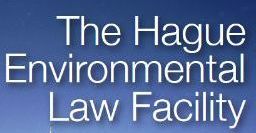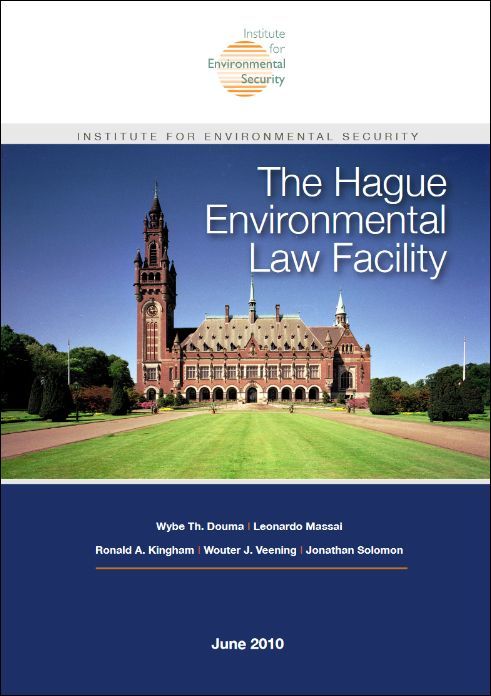HELF – The Hague Environmental Law Facility

The HELF Project investigates the usefulness and necessity of a facility in the field of environmental law in The Hague. This facility would have an advisory function with regards to facilitating access to justice and an auxiliary training function aimed at improving the knowledge and skills of civil servants, diplomats and negotiators on issues of implementation, enforcement and compliance.
Feasibility Study
In June 2009, the IES presented the findings of the research project The Hague Espace for Environmental Global Governance (Project background). The project was carried out by IES and the T.M.C. Asser Institute with the support of the Dutch Ministry of Foreign Affairs, the Ministry of Housing, Spatial Planning and the Environment and the City of The Hague.
The main objective of the study was to investigate the usefulness and necessity of a facility in the field of environmental law in The Hague. This facility would carry out services that have a policy and practical relevance, are based on the most recent international legal developments and would offer attainable and realistic solutions to identified problems. The facility should not carry out work that is already done elsewhere, and should be affiliated to one or more existing institutions in The Hague.
 The study resulted in The Hague Environmental Law Facility (HELF). HELF would have two main functions: an advisory function with regards to facilitating access to justice aimed at directing parties with environmental problems or disputes to the appropriate (alternative) dispute resolution mechanism, which includes local and national procedures, and 2) an auxiliary training function aimed at improving the knowledge and skills of civil servants, diplomats and negotiators on issues of implementation, enforcement and compliance.
The study resulted in The Hague Environmental Law Facility (HELF). HELF would have two main functions: an advisory function with regards to facilitating access to justice aimed at directing parties with environmental problems or disputes to the appropriate (alternative) dispute resolution mechanism, which includes local and national procedures, and 2) an auxiliary training function aimed at improving the knowledge and skills of civil servants, diplomats and negotiators on issues of implementation, enforcement and compliance.
The HELF will facilitate raising awareness on challenges of international environmental law, enhance its effectiveness, contribute to educate negotiators as to the ins and outs of highly complicated issues such as climate change and contribute to educate civil servants in the correct implementation and enforcement of existing and future international, regional and national environmental laws.
Event: HELF Workshop
On 20 April 2010 the IES organised a workshop on "The Hague Environmental Law Facility (HELF)". The purpose of the workshop was to highlight the importance of remote sensing in the monitoring of compliance and enforcement of international environmental law.
Documentation
Report of the Hague Environmental Law Facility - June 2010
Feasibility Study for The Hague Environmental Law Facility
Volume One: Report - May 2009
Feasibility Study for The Hague Environmental Law Facility
Volume Two: Annexes - May 2009
Profiles of Organisations consulted / researched in the feasibility study:
- Organisations and other centres based in The Hague
- International Organisations and other centres based outside The Netherlands
HELF Project Team
Coordinators
Frans Nelissen, T.M.C. Asser Institute
Wouter J. Veening, IES
T.M.C. Asser Institute
Wybe Th. Douma
Leonardo Massai
IES
Ronald A. Kingham
Serge Bronkhorst
Jonathan Solomon